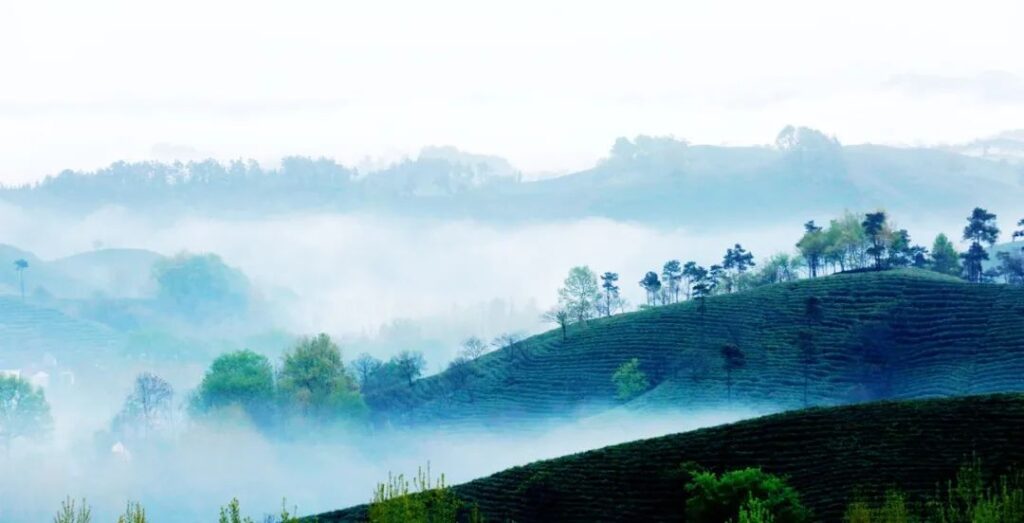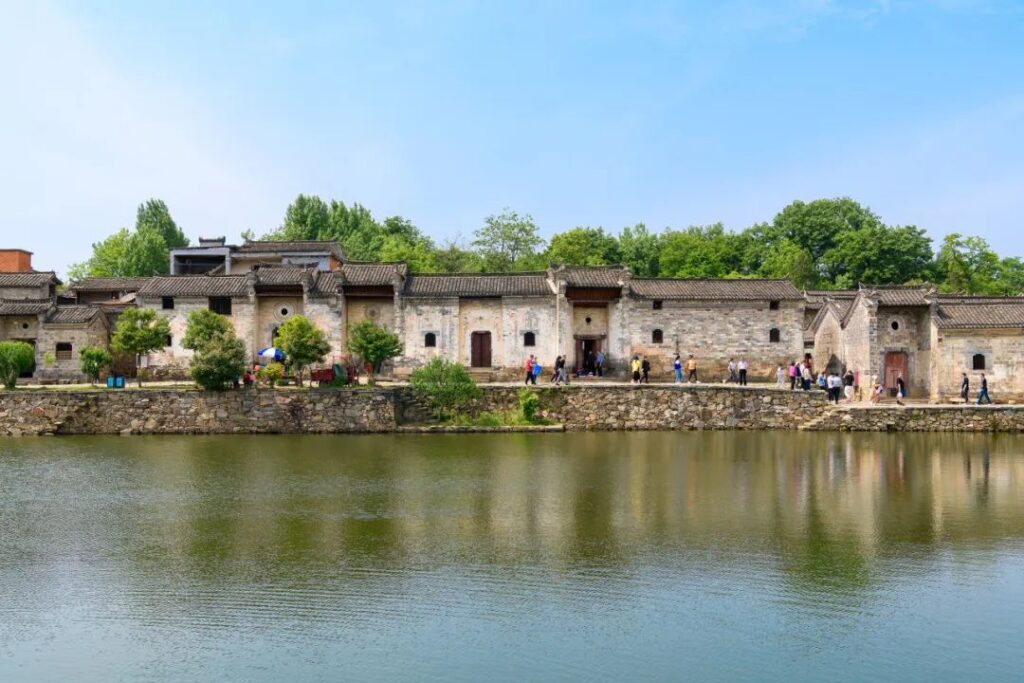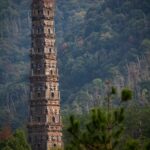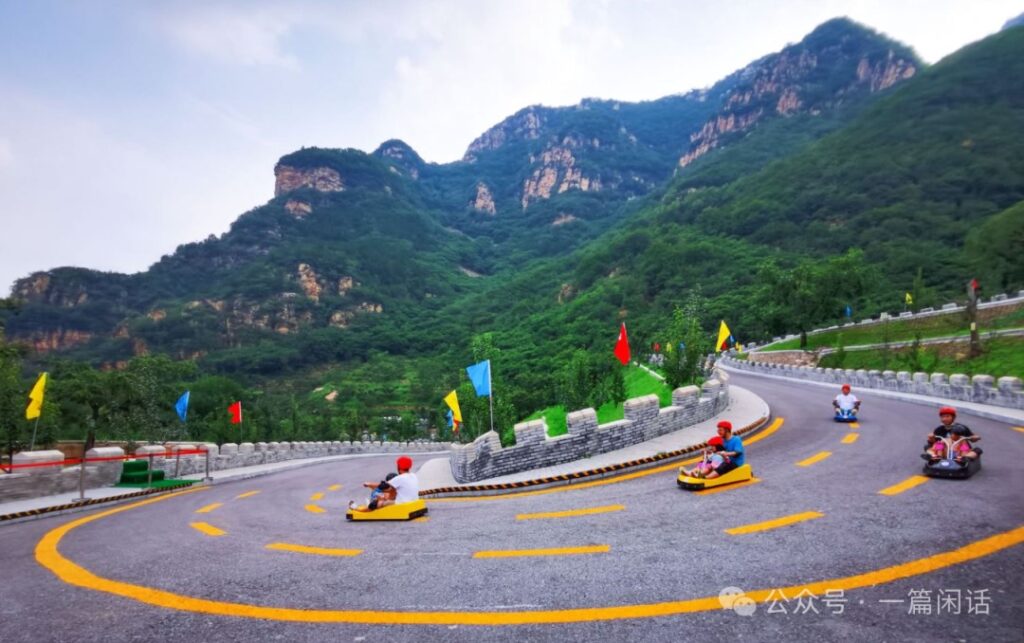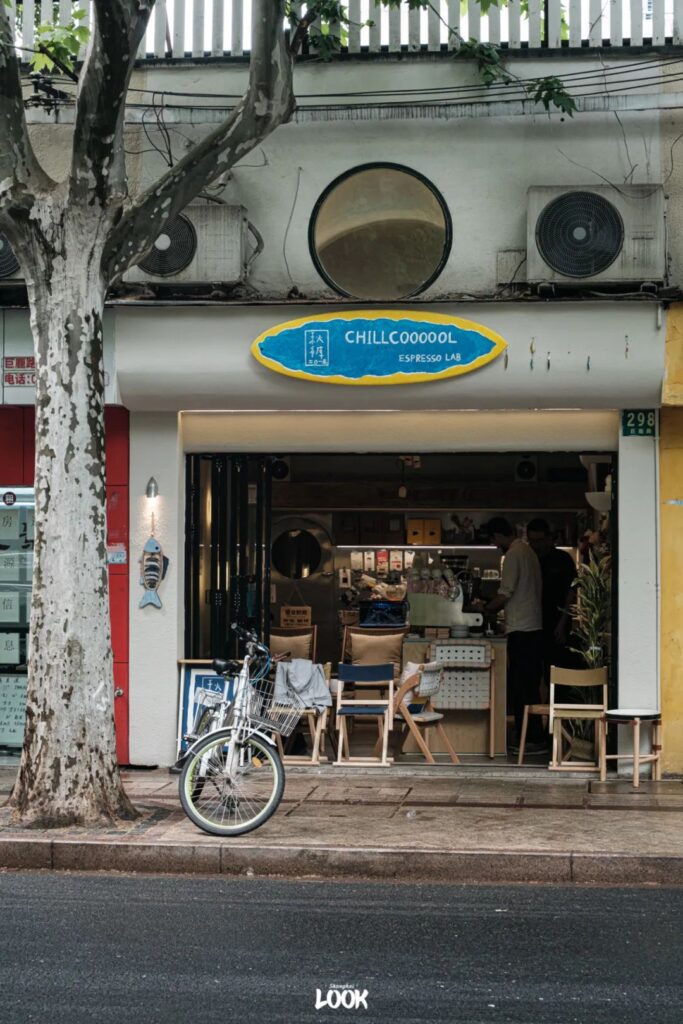When it comes to the most desirable places to live, which city’s enchanting image comes to mind?
The romance of Dalian, the passion of Changsha, the gentleness of Xiamen, the enthusiasm of Chongqing, or the leisurely pace of Chengdu?
But among these glittering stars, there is a unique pearl hidden – the “one and only, eternally livable holy land” in China. Its fame may not be as resounding as other cities, and its territory is not vast and boundless, yet it possesses a distinctive elegance and grace, like a gentle and beautiful poem that captivates the soul.
That place is none other than Xinyang in Henan Province!
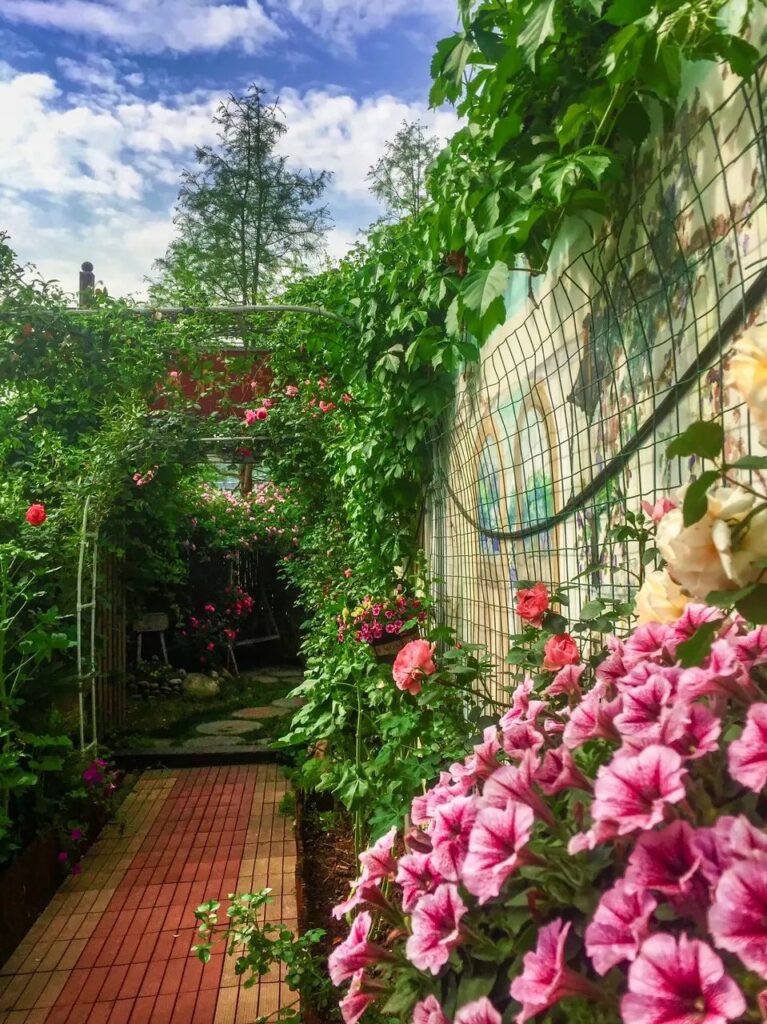
When mentioning Xinyang, the first thing that comes to many people’s minds is the fragrant “tea” that wafts through the air.
Xinyang Maojian tea is renowned worldwide, but Xinyang’s charm goes far beyond that. Here, you can find stunning natural scenery, profound cultural heritage, and an enchanting ambiance that makes people linger and forget to leave.
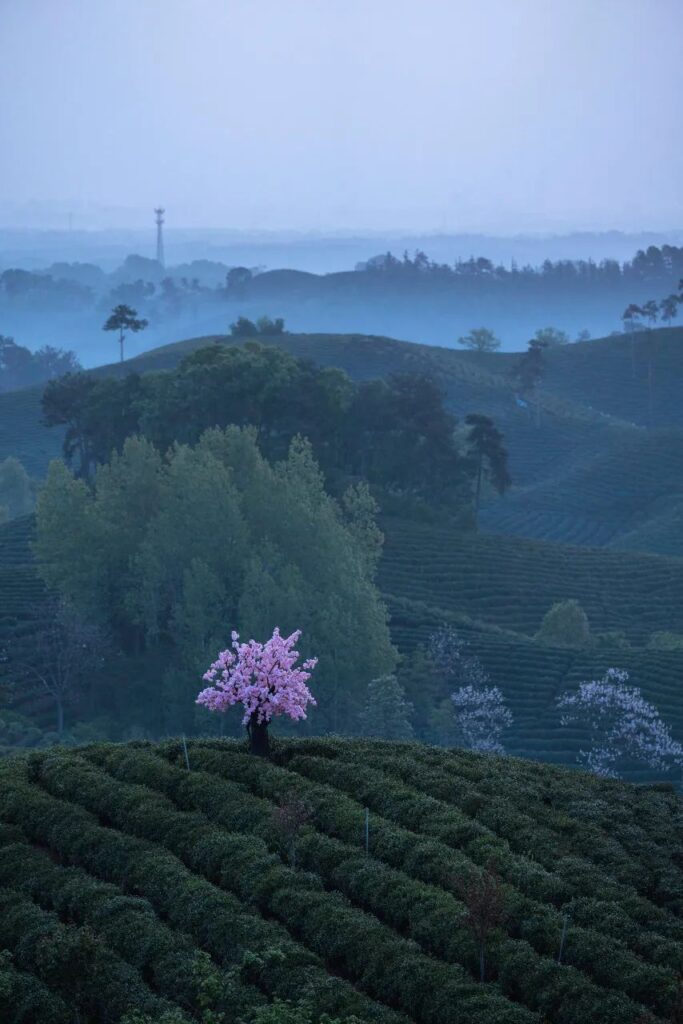
Xinyang has been praised as “Jiangnan in the North, and the North in Jiangnan.” It is a place that haunts one’s dreams.
Its beauty is like emerald green jade, clear and transparent; like exquisite embroidery, meticulous and detailed; like a magnificent scroll painting, grand and majestic.
The beauty of Xinyang is fully displayed in its mountains and waters. Here, the mountains are lush, the water is clear, the forests are verdant, the climate is pleasant, and the scenery is picturesque, as if it were another world.
It blends the charm of Henan and Hubei, embraces the flavors of the north and south, and gathers the essence of the world’s beauty, making people fall in love with it and praise it in awe.

The term “energy field” has recently become a popular buzzword.
From the perspective of energy medicine, every person is a unique energy field, like a star in the universe, possessing their own microcosm. And the universe is a vast and boundless energy field that encompasses all things.
When you escape from the hustle and bustle of the city and embrace the arms of nature, that energy seems to be nourished and replenished.
Imagine when you are in the midst of nature, hugging a towering tree with deep affection, and the tree seems to respond to you, quietly taking away your inner fatigue and negative energy, injecting you with new vitality and vigor.
This is why we feel rejuvenated and reborn when we walk in nature.
And Xinyang, this city’s energy field is particularly strong!
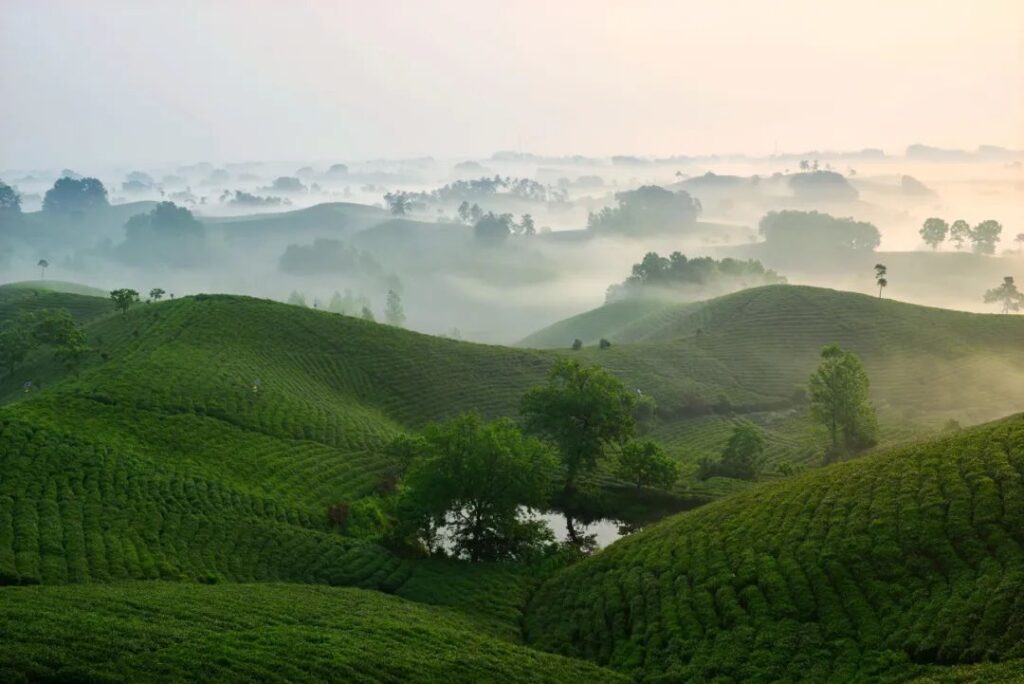
Many people who have set foot in Xinyang have marveled that there seems to be a magical power here, allowing them to become refreshed and renewed in just a few short days.
Here, mountains and waters coexist, and spiritual energy abounds, as if it were a sanctuary specifically created by nature for healing.
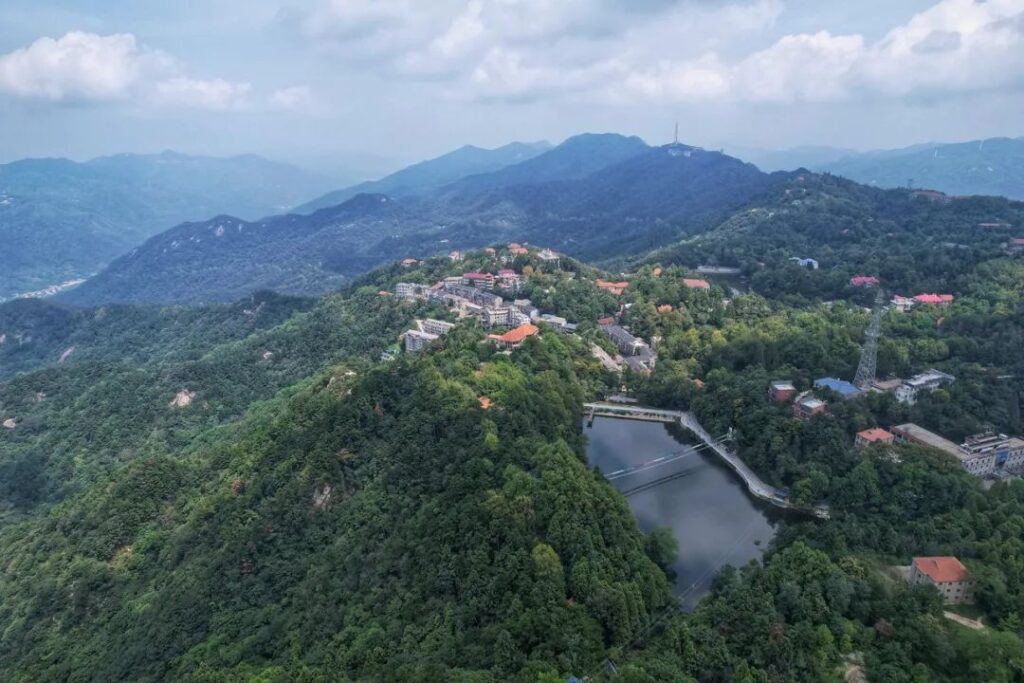
When mentioning Xinyang, one cannot help but bring up the earthly paradise – Jigong Mountain.
It is renowned worldwide for its three major features: a cool world, a park in the clouds, and an architectural expo. Its unique climate and environment have endowed it with a distinctive natural landscape, praised as “the beauty of Qing dividing Henan and Hubei, and controlling the three rivers.”
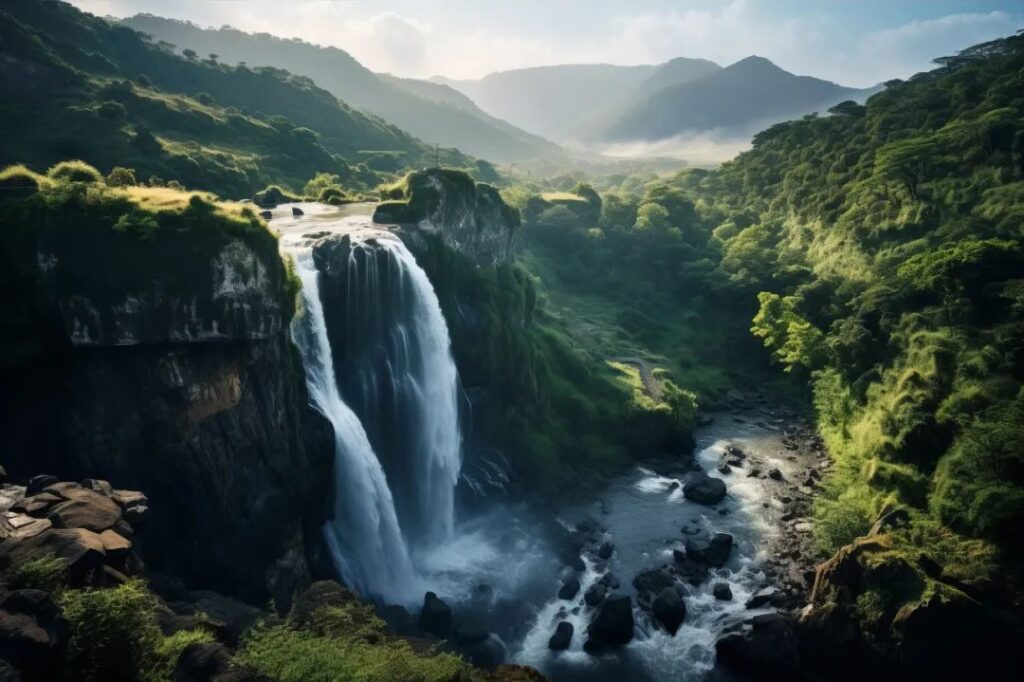
The buildings on the mountain are well-arranged and have a strong exotic flavor, harmoniously blending with nature, forming a unique villa spectacle known as the Museum of World Architecture.
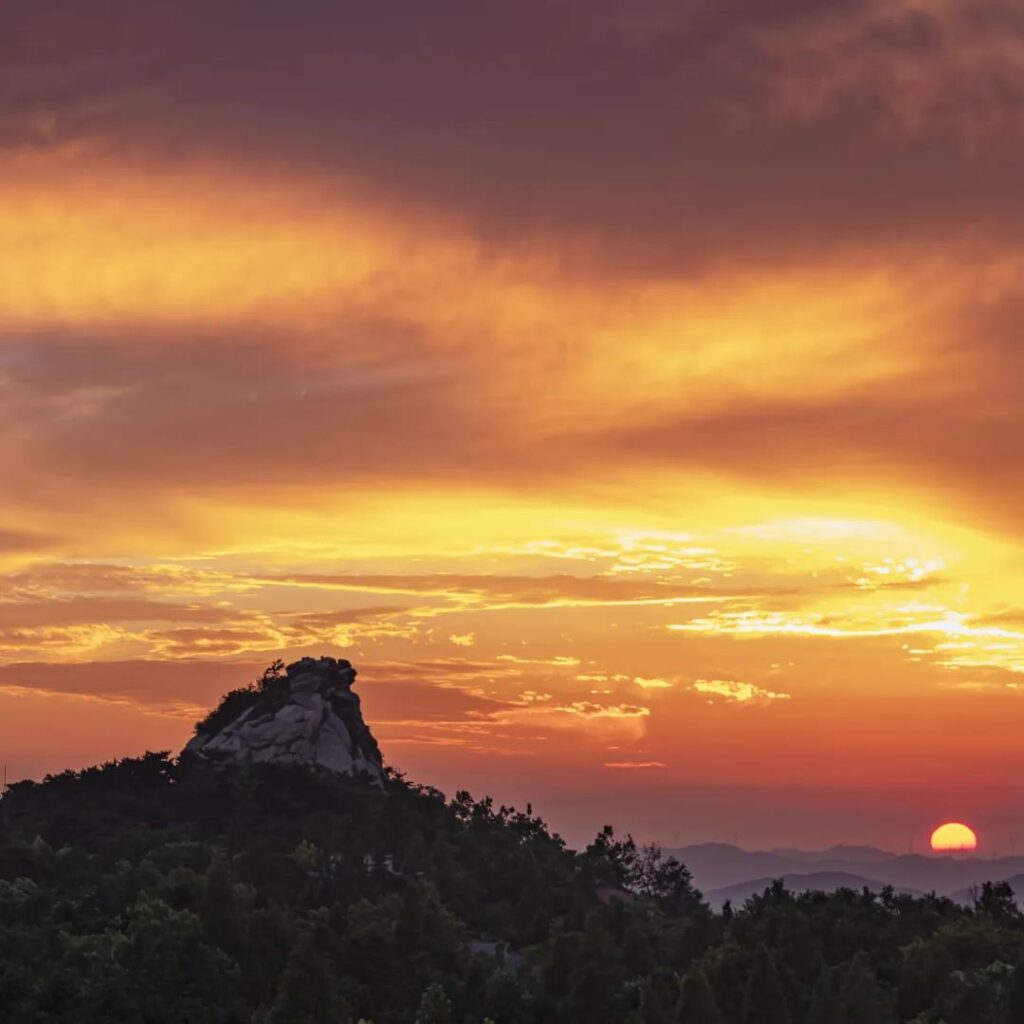
The mountain peaks are layered and verdant, like a giant dragon lying across the land. Climbing to the summit, the majestic sight of towering peaks and continuous mountain ranges unfolds before your eyes. Amidst the lush trees, streams gurgle, resembling a natural landscape painting that refreshes the mind and soul.
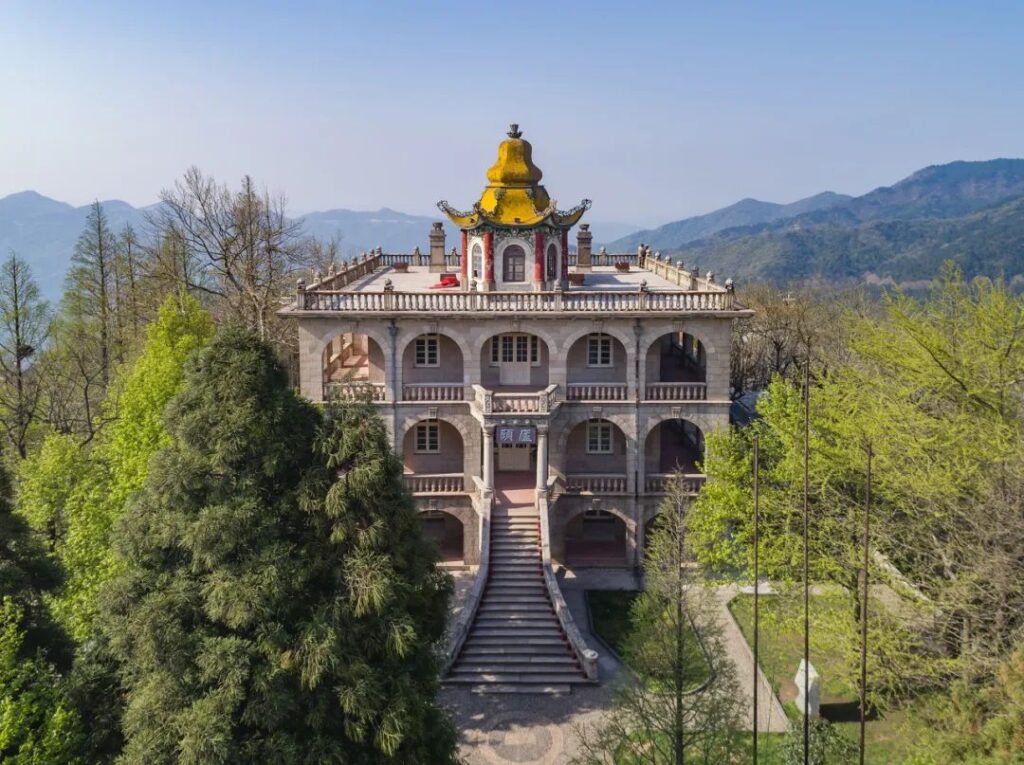
Wandering in the mountains, it feels like stepping into a tranquil fairyland. The chirping of birds, the fragrance of flowers, and the murmuring of streams perfectly interpret the serenity and mystery of nature.
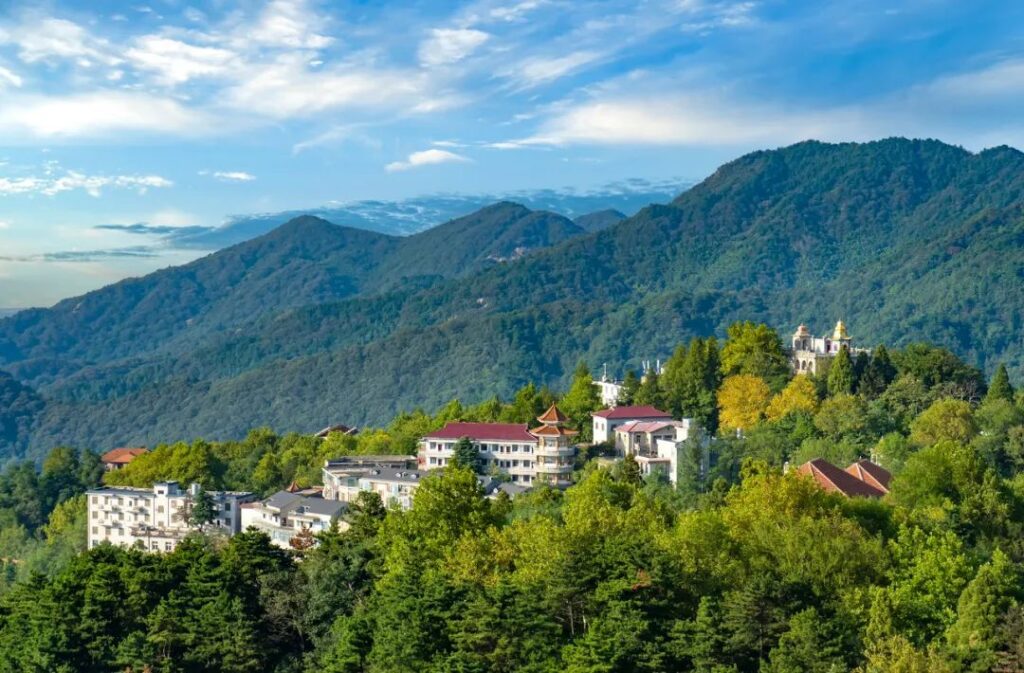
West Jiuhua Mountain is located in the middle section of the Dabie Mountains. The Bailong Tan Waterfall cascades down, creating a spectacular scene. The mountain is rich in plant species. In spring, wild orchids compete to bloom, filling the air with fragrance; on the mountain rocks, rhododendrons blossom in the wind, like floating red clouds.
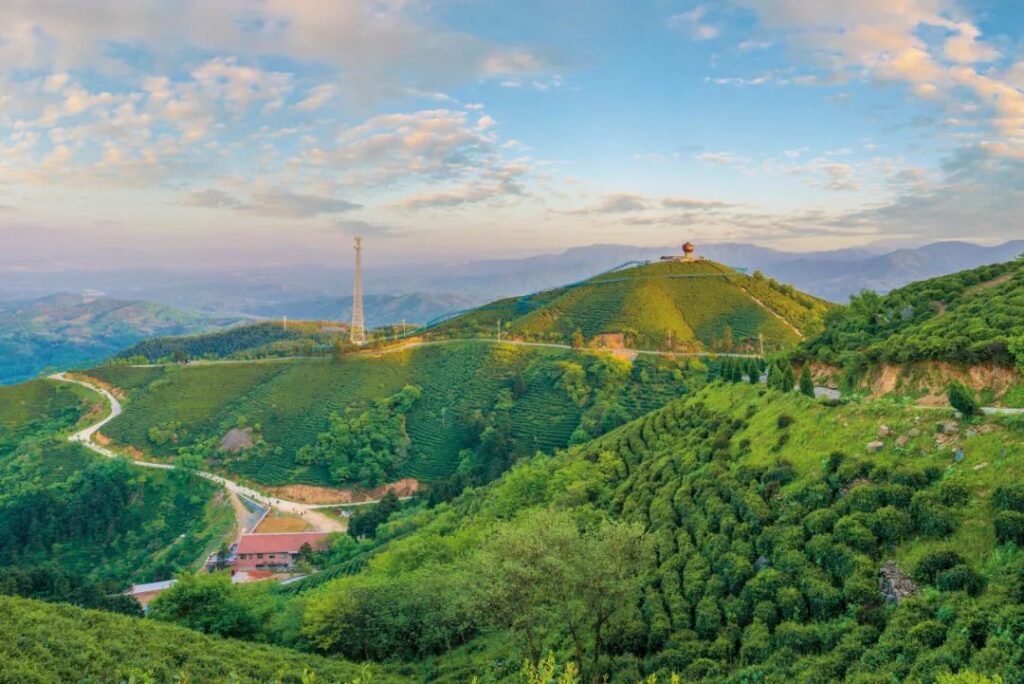
In the height of summer, the dense shade here blocks out the sun, making it a perfect place to escape the heat.
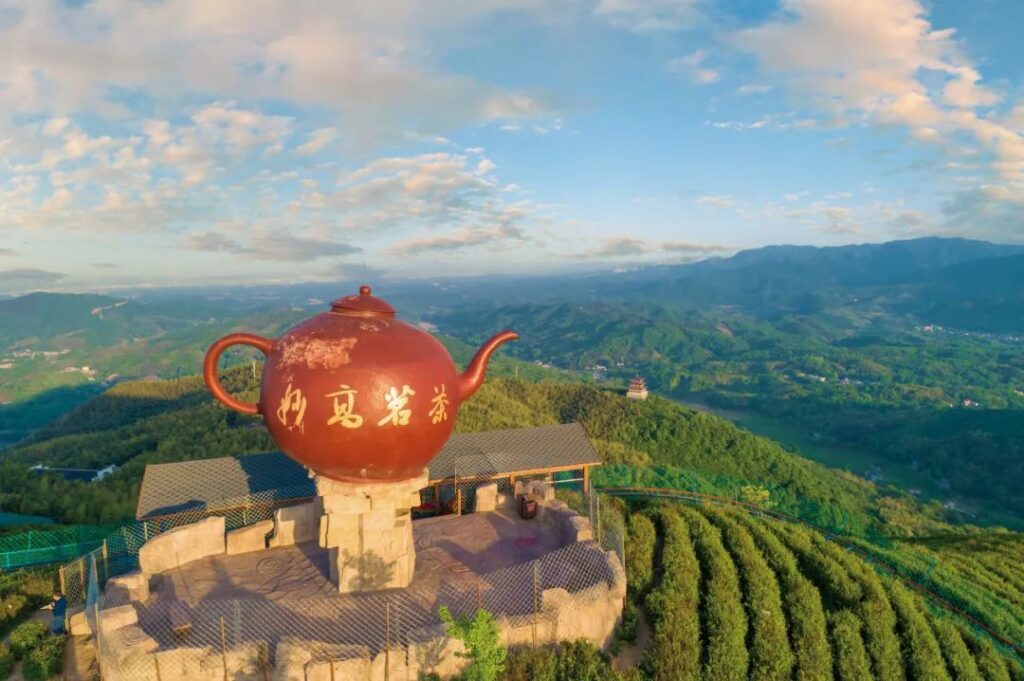
Even more amazing is the bamboo here. Over 10,000 mu (1,647 acres) of bamboo groves stretch from the foot of the mountain to the summit, varying in height and lush with greenery.
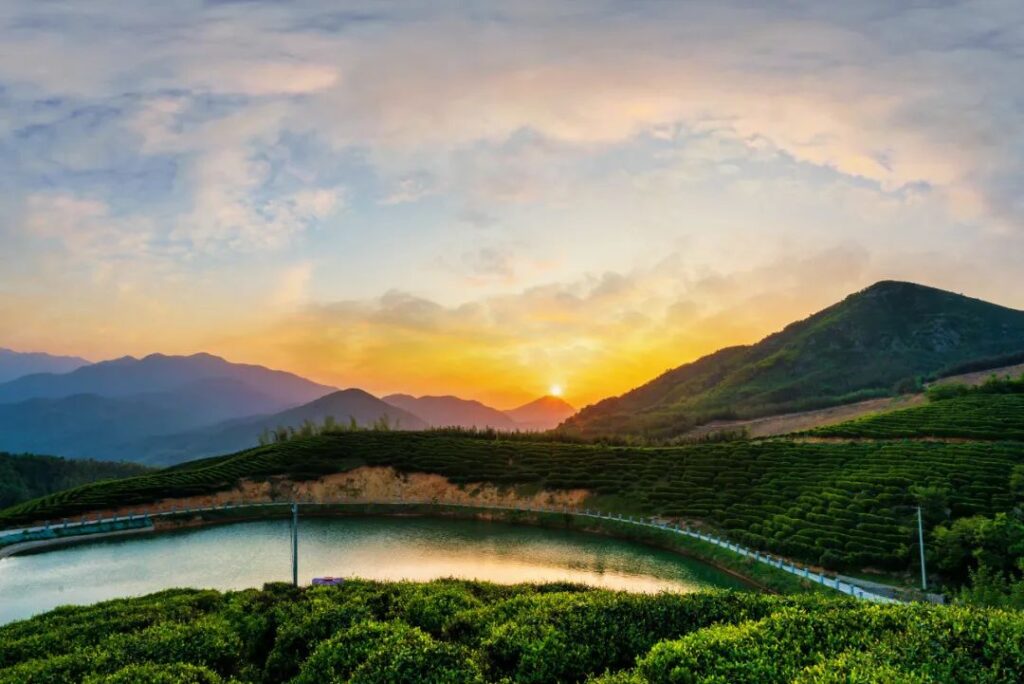
Standing in the bamboo forest, breathing the fresh air, and listening to the sound of birds and the wind rustling through the bamboo leaves, it feels like being immersed in a sea of emerald green.
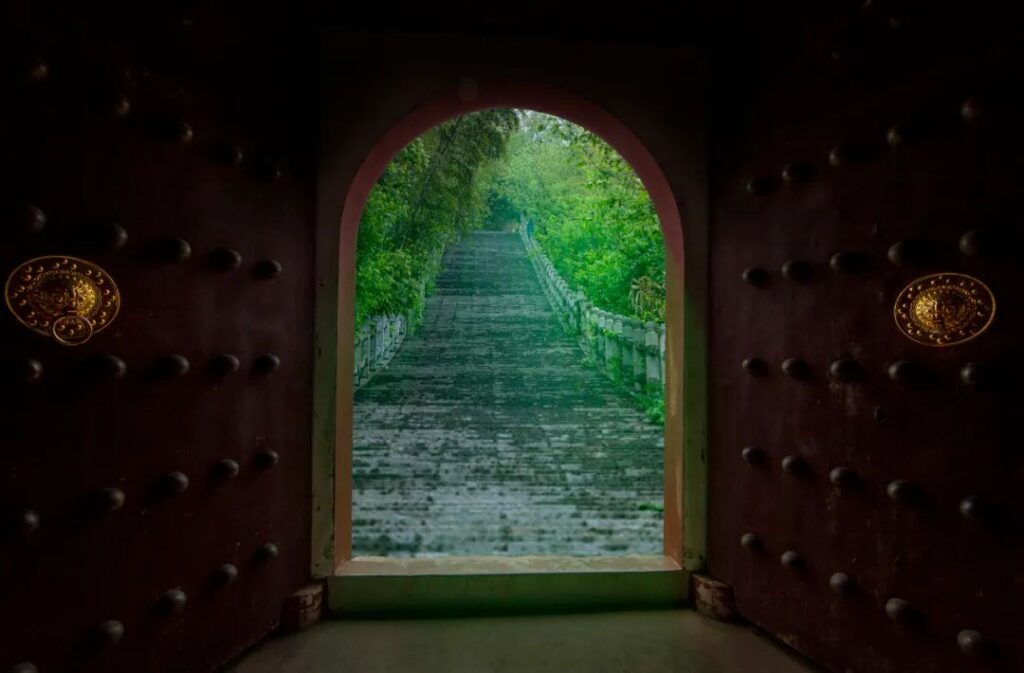
The terraced fields of Suokou on Jiuhua Mountain are also breathtakingly beautiful.
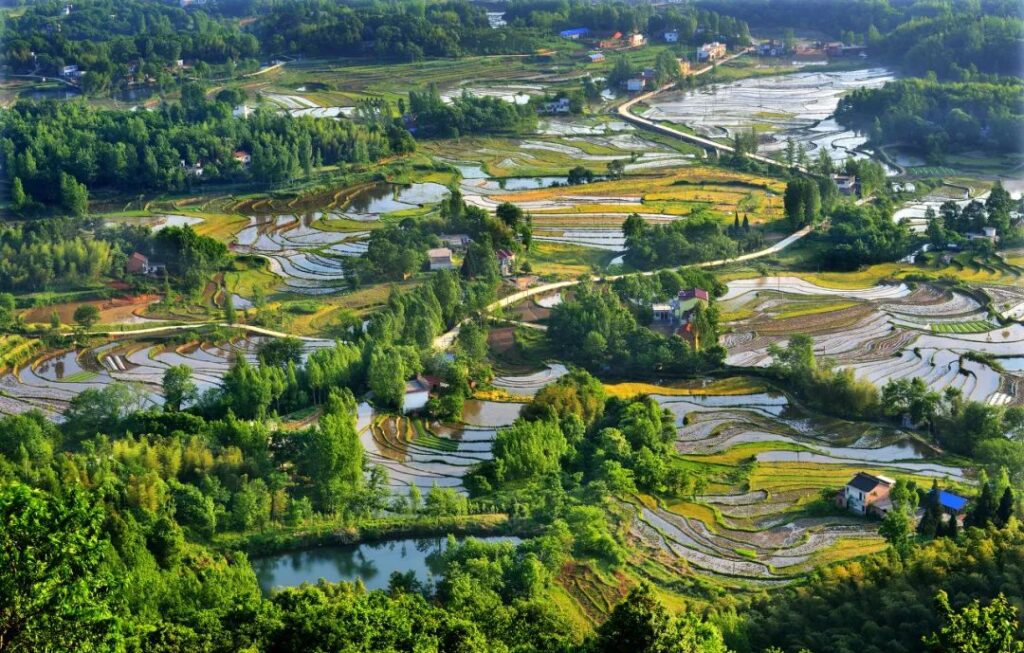
The tea plantations and terraced fields are intricately arranged, covering the entire mountainside with a verdant green. The tea fields crisscross the mountain, following the undulating terrain, creating a stunning sight that takes one’s breath away.
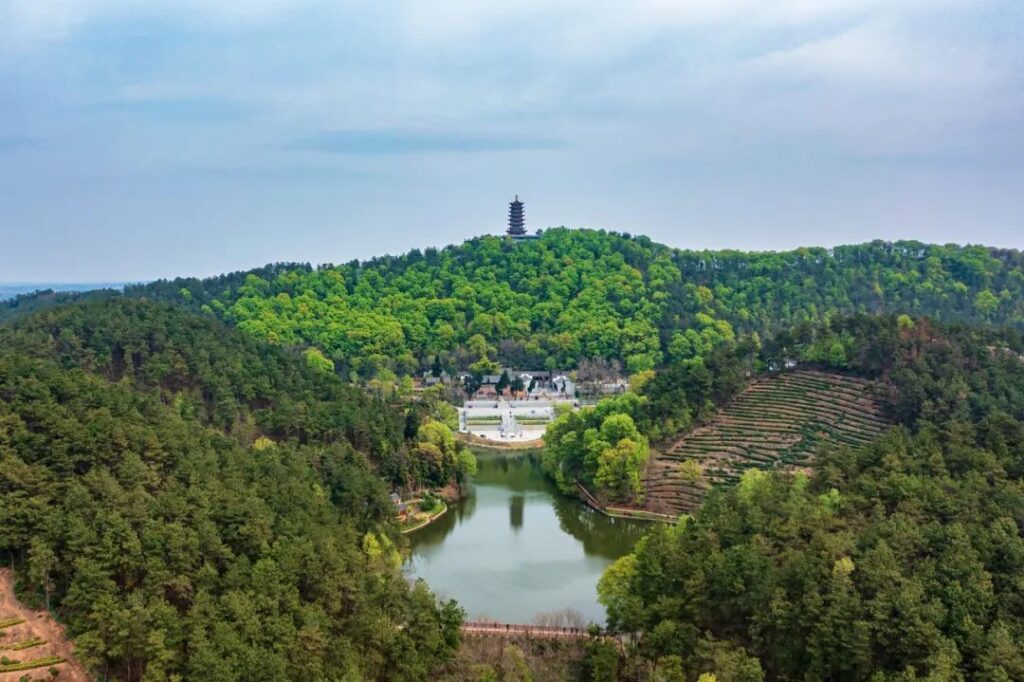
Although Guangshan is not well-known, its scenic beauty is in no way diminished.
Here, the views are expansive, the air is fresh, and one can not only appreciate the wonders of nature but also savor authentic farmhouse delicacies.
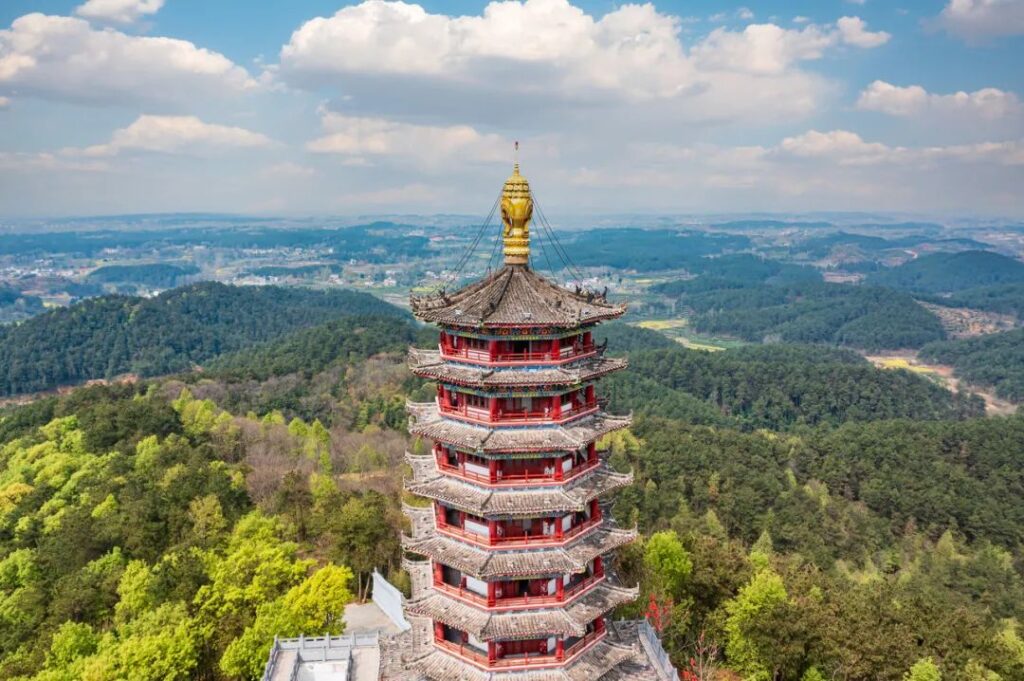
Jingjusi Temple is also a place worth visiting, where historical figures such as Su Dongpo, Chen Jichang, and Huang Tingjian have left their footprints.
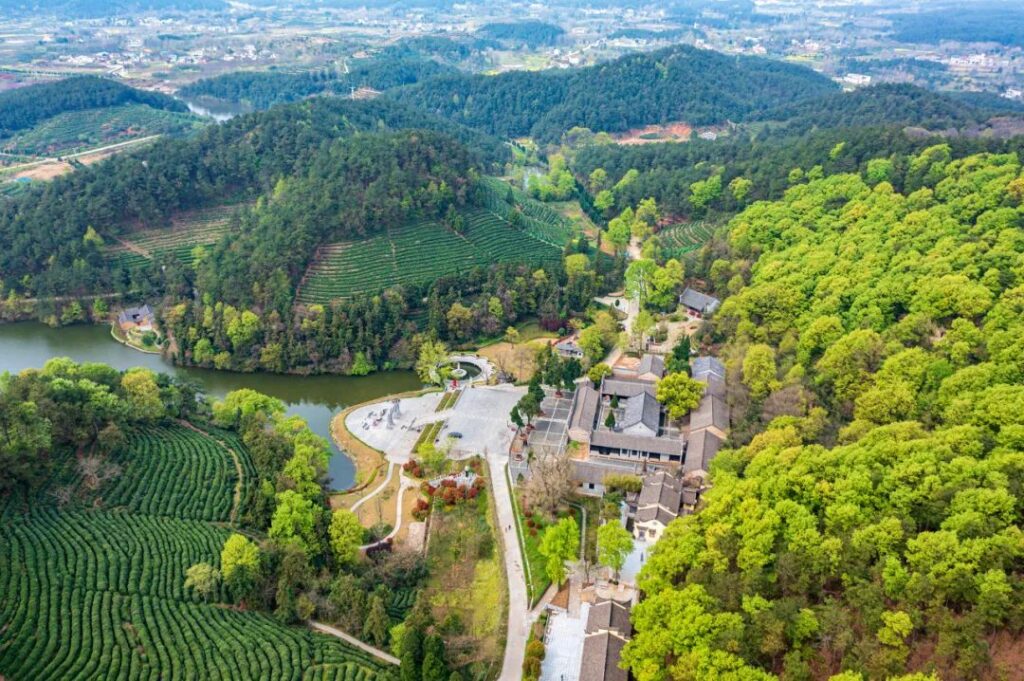
Although Xinyang has no sea, it has the sparkling pearl of Nanwan Lake. The water area is equivalent to 12 times that of West Lake in Hangzhou, with 61 islands scattered like stars.
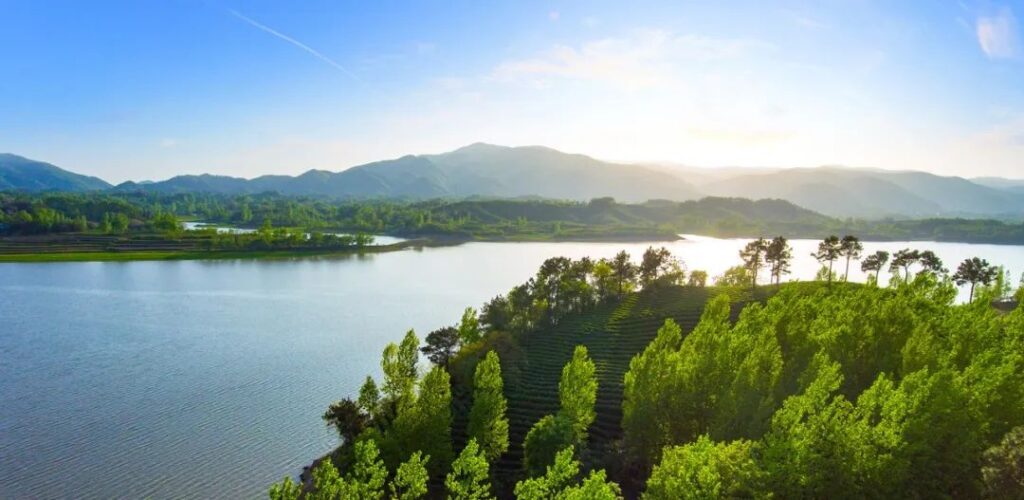
The lake surface is shrouded in mist, like a thin veil, resembling a fairyland. The lake water is crystal clear, with swaying aquatic plants and small fish swimming in between. Looking out at the lake from afar, the water and sky merge into one, with shimmering azure waves.
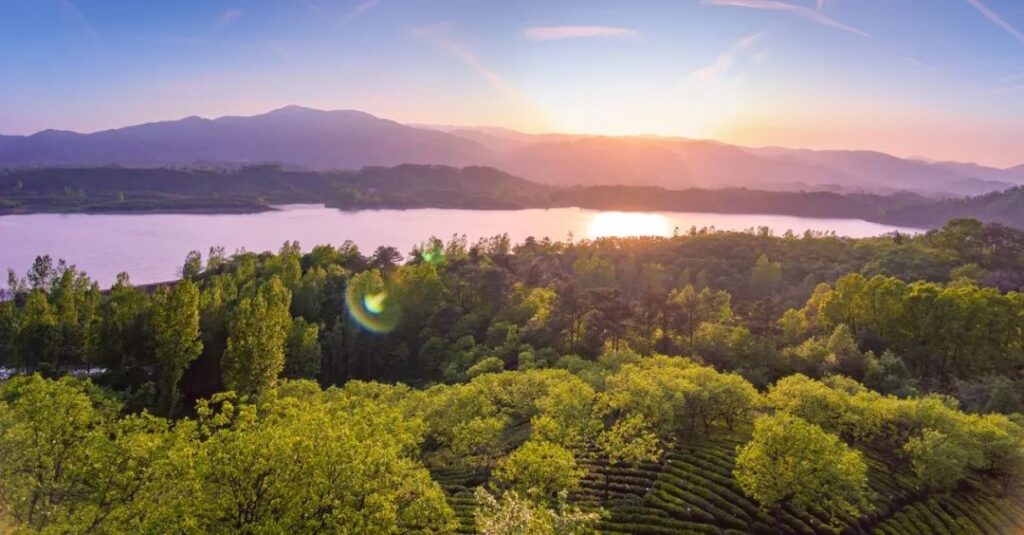
At dawn, the lake is tranquil and mysterious; upon closer observation, the water is so clear that one can see straight to the bottom, like a piece of transparent glass.

The tea mountains here are like jewels embedded in the wilderness.
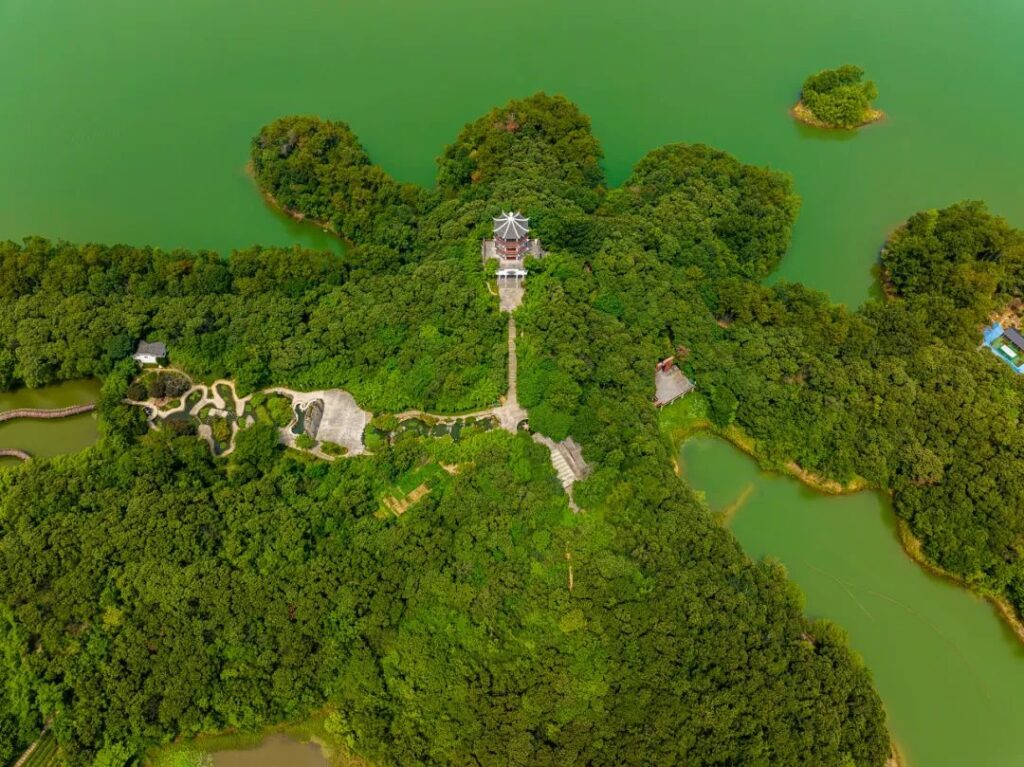
The blue lake water sparkles with enchanting radiance under the sunlight, while the aroma of the vast tea plantations wafts in the wind, captivating those who encounter it.
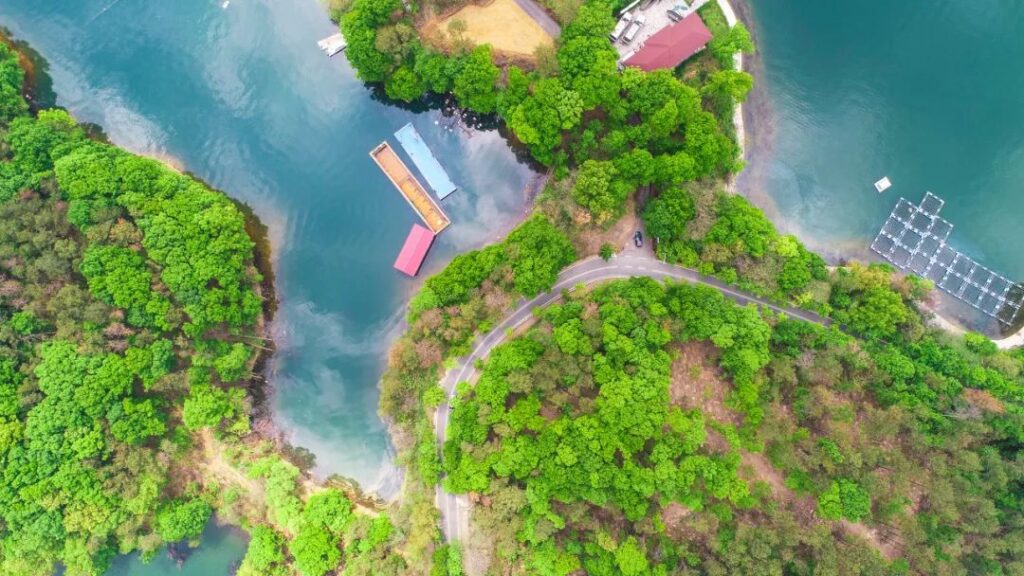
Xinyang, a place filled with energy, a paradise that makes people linger and forget to leave.
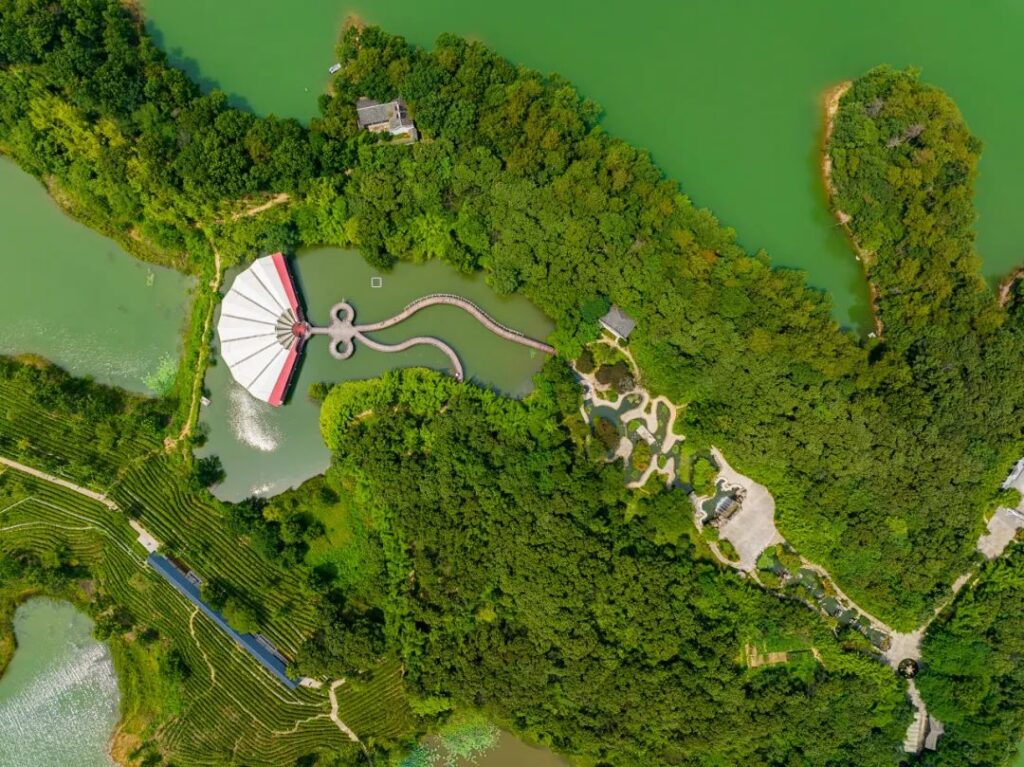
“The land is vast and flat, with well-arranged houses, fertile fields, beautiful ponds, and mulberry trees and bamboo groves surrounding them, as if bestowed by nature’s blessings.
Paths crisscross, and the sounds of chickens and dogs can be heard. Men, women, young and old are busy in the fields, their clothing simple yet exuding an uncontested tranquility.
The white-haired elderly and the tender-haired children all live contentedly on this land, enjoying simple and pure happiness.”
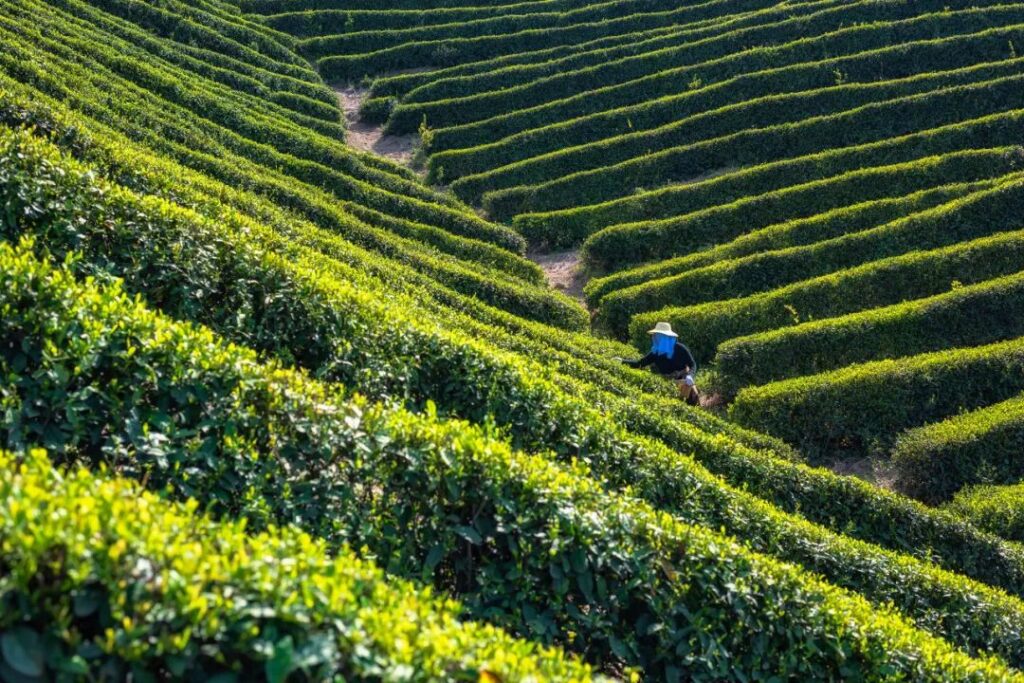
This is precisely the “Peach Blossom Spring” described by Tao Yuanming, a dreamlike place that captures the heart and mind. Today, in the embrace of Pingqiao District in Xinyang City, there is indeed such a wonderful place—Haotang.
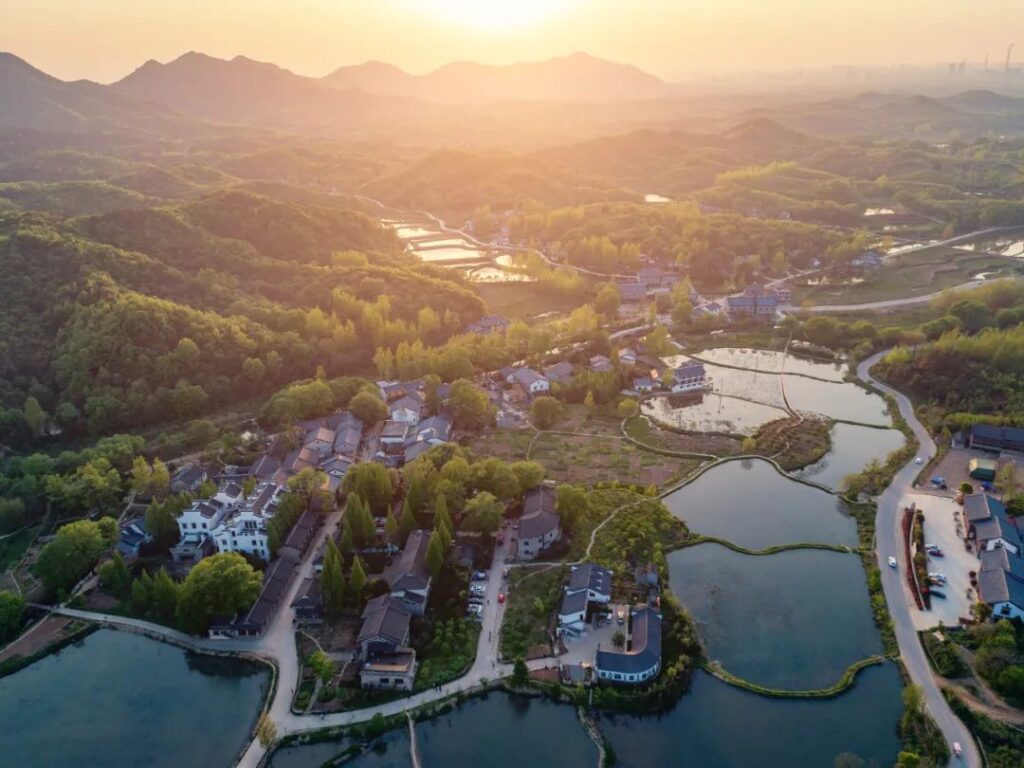
Setting foot on the stone path of Haotang, it feels like traveling through time, returning to an age of ancient charm.
The gurgling streams and the picturesque ancient houses complement each other, while vast expanses of lotuses bloom, adding a touch of vitality and color to this land.
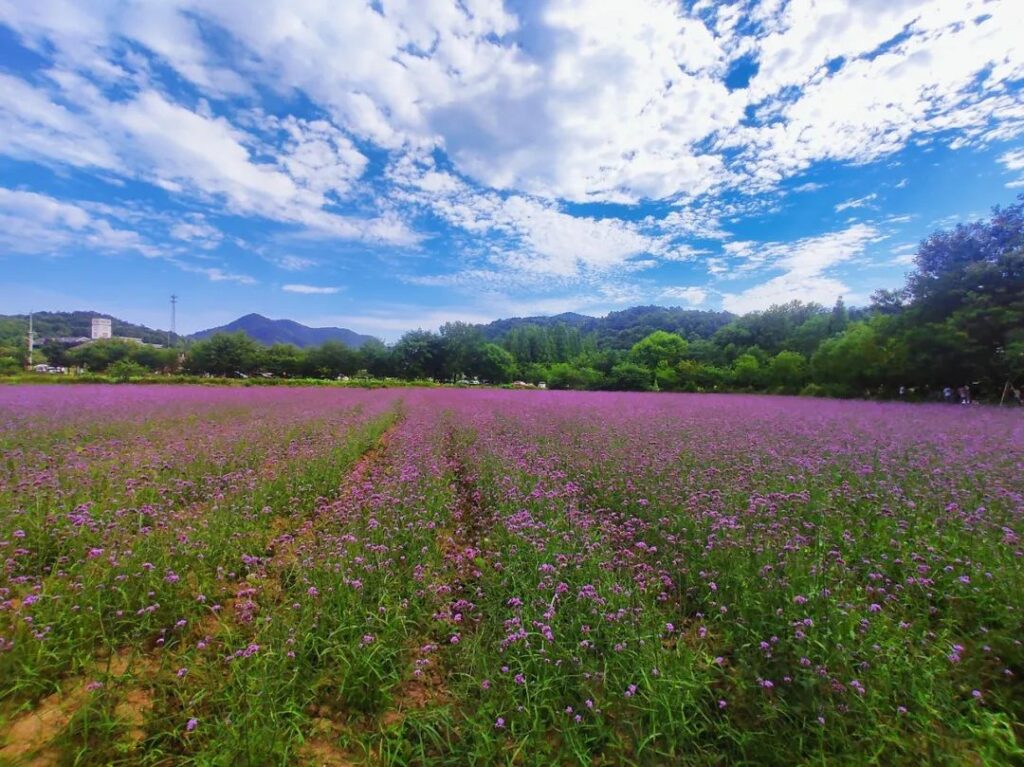
The beauty of Haotang lies not only in its scenery but also in its changing seasons.
In spring, purple cherry blossoms dance in the wind, like pink clouds; in summer, the fragrance of lotus ponds attracts countless tourists to linger; in autumn, chrysanthemums bloom across the mountains, resembling a golden ocean; in winter, century-old trees stand tall, covered in snow, guarding this land.
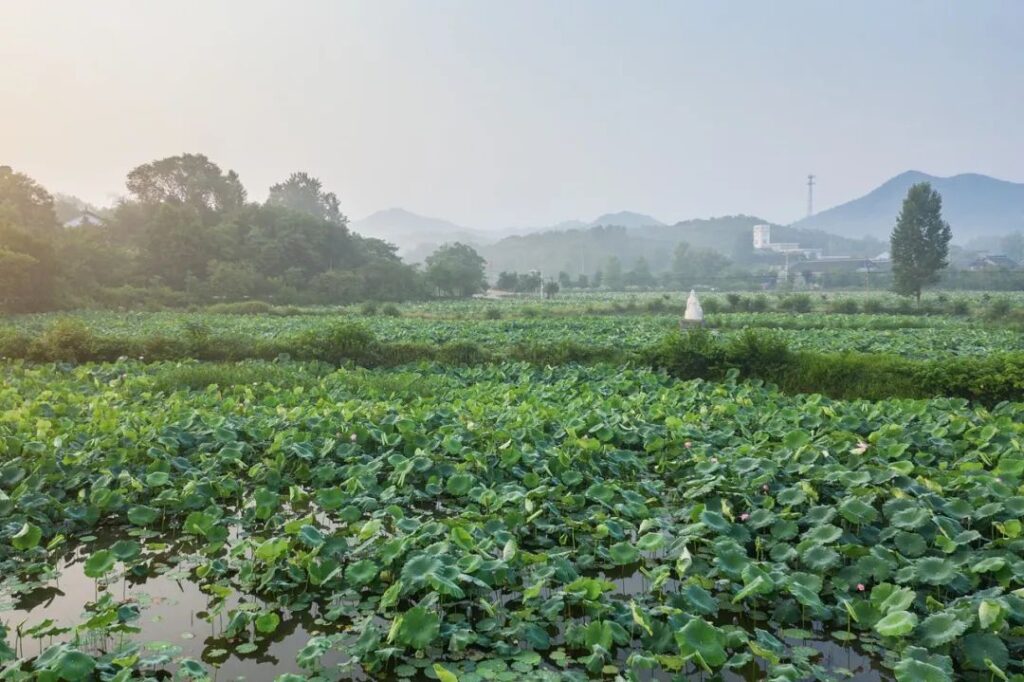
Tianpu Dacun is another beautiful painting scroll.
The village is situated at the foot of Qinglong Ridge, facing south with its back to the north. The rear mountain resembles a wise man sitting cross-legged, while a small river flows gently in front of the village, as if nature’s hymn.
The village coexists harmoniously with the surrounding mountains, water, terraced fields, forming a harmonious and beautiful pastoral painting.
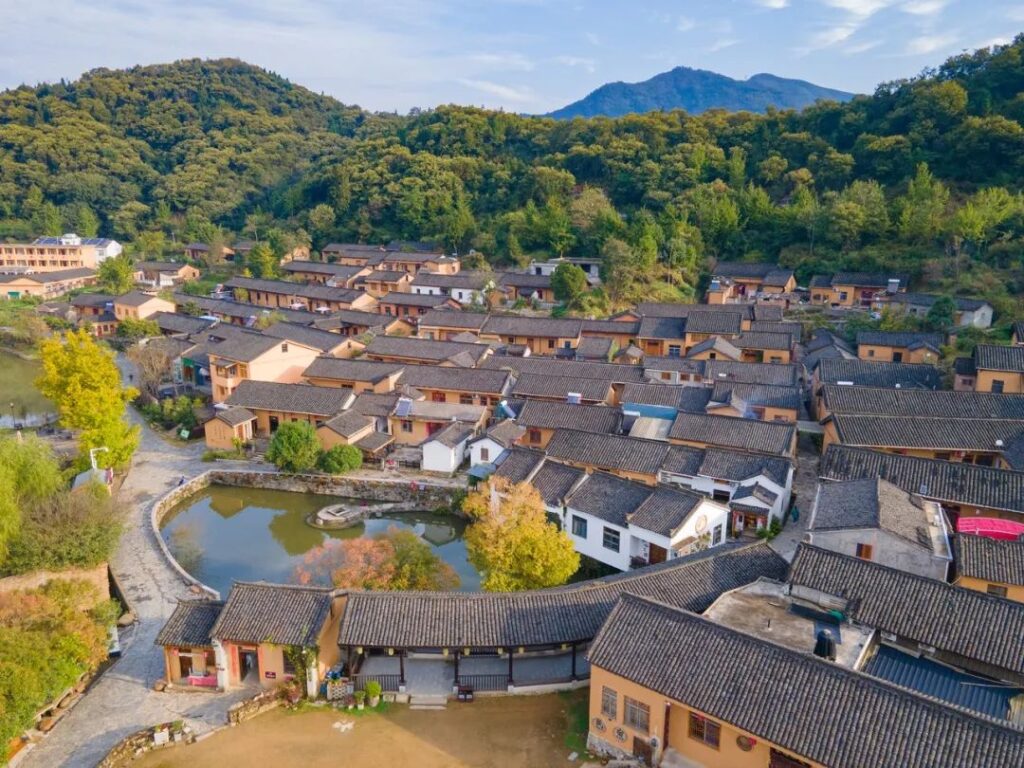
The construction of the village follows the traditional theory of feng shui site selection, relying on mountains and facing water, planned and built according to the terrain.
Natural stone bridges, tranquil river water, gnarled old trees, mottled doors and windows, bamboo baskets hanging on the walls, winnowing baskets for drying grain, and heavy stone mills, each telling the story of Haotang’s antiquity and the simplicity of its folk customs.
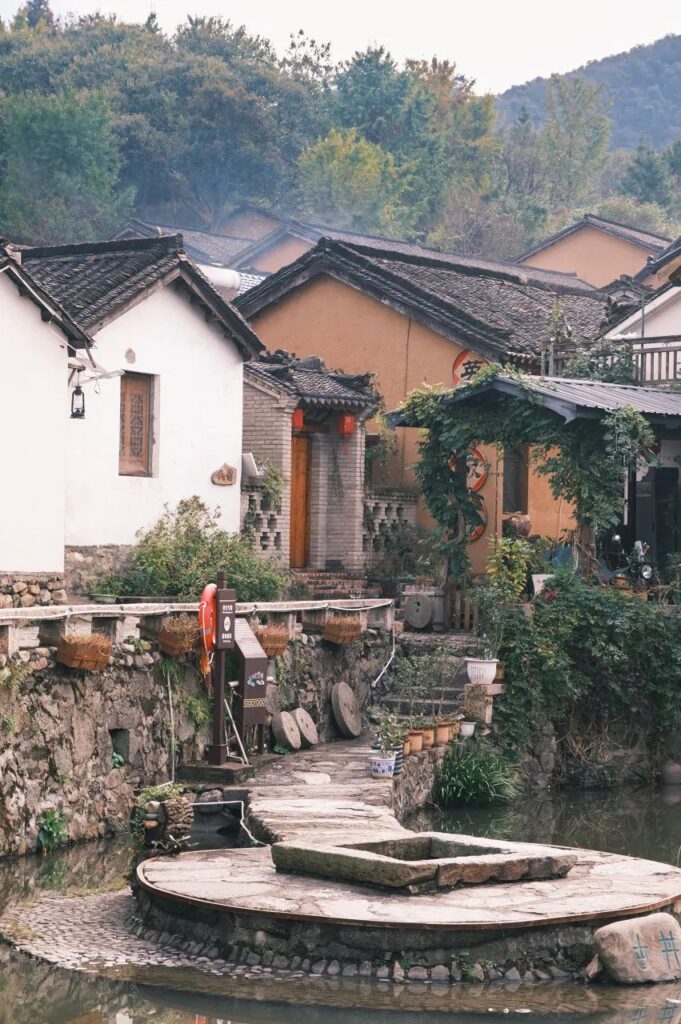
As night falls, the lights of Tianpu Dacun gradually illuminate, the twinkling lights casting a soft and romantic glow over the entire mountain village.
The villagers, unaware of worldly affairs, have smiles on their faces, as if this place is their ideal Peach Blossom Spring.
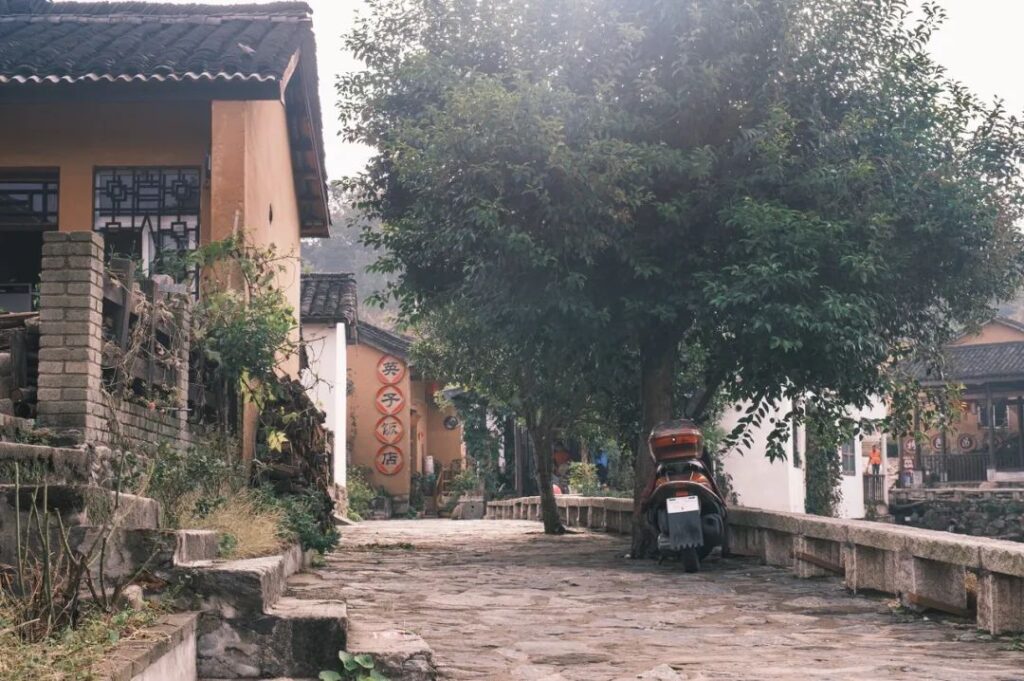
However, despite its beauty, many people choose to leave.
Data shows that over 2 million people have left this city, with the outbound population accounting for nearly a quarter. They have to leave this land they deeply love for their dreams and better opportunities.
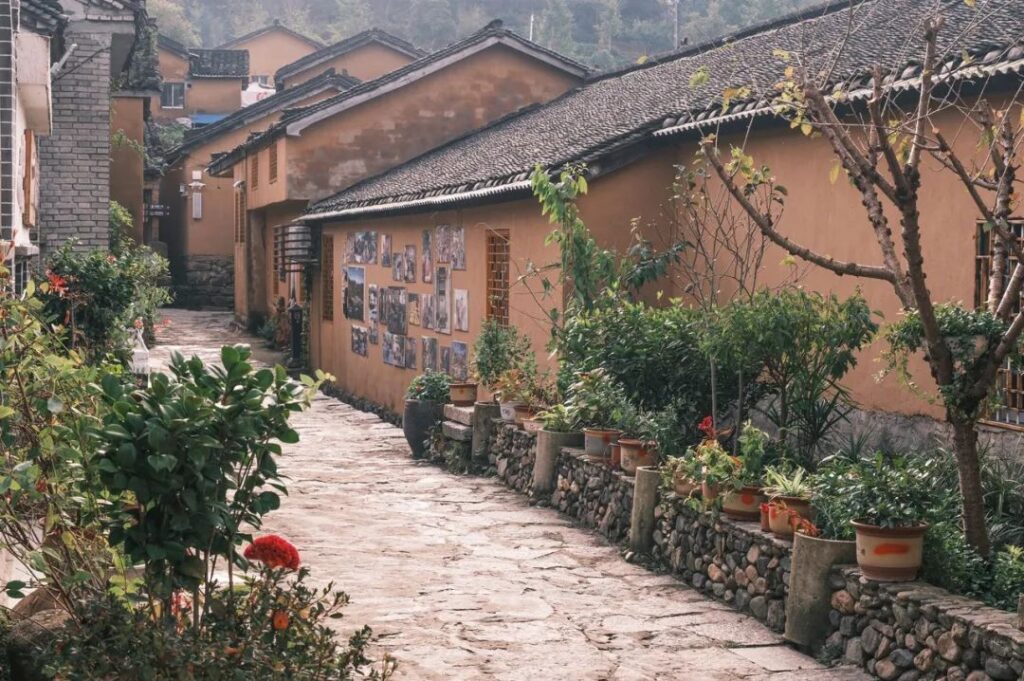
Therefore, some say that Xinyang is like an elderly person left behind, silently guarding this land, maintaining its purity and beauty.
It is like a lost paradise, far from the hustle and bustle of the city, allowing people to settle their hearts and experience nature’s blessings.
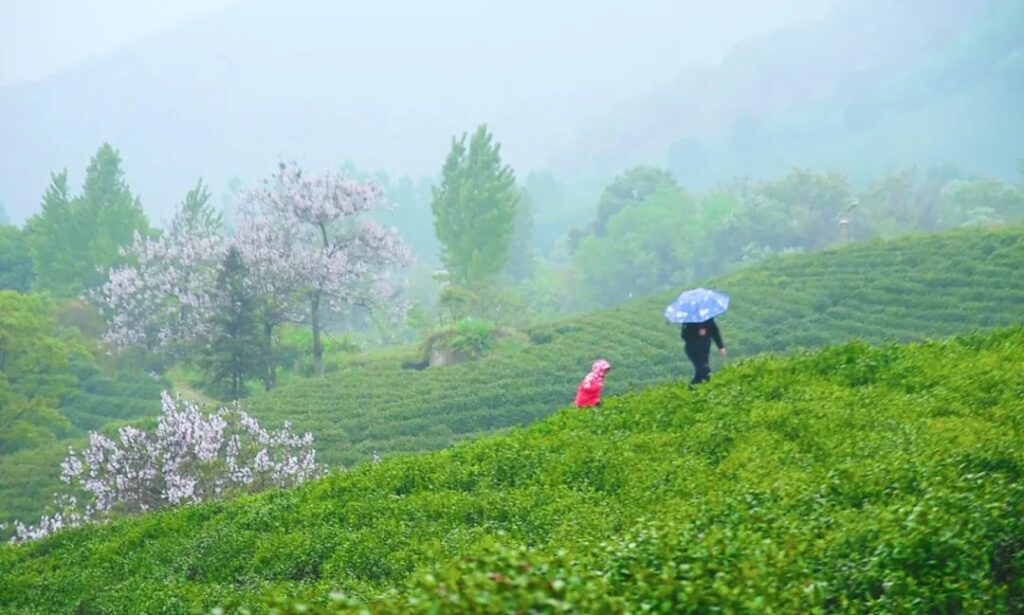
But it is precisely because of this purity and beauty that Xinyang lacks the bustle a city should have.Here, you can feel nature’s gifts and appreciate the charm of famous mountains, waters, and temples.The 800-mile Dabie Mountains, crisscrossing rivers and canals, water-filled fields, and ancient villages scattered like stars, together form a magnificent painting scroll.
